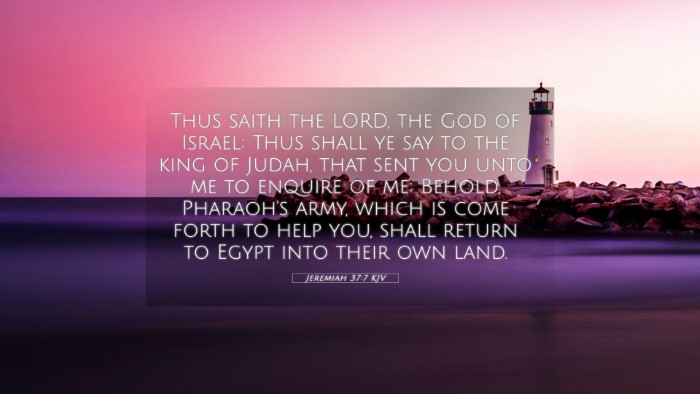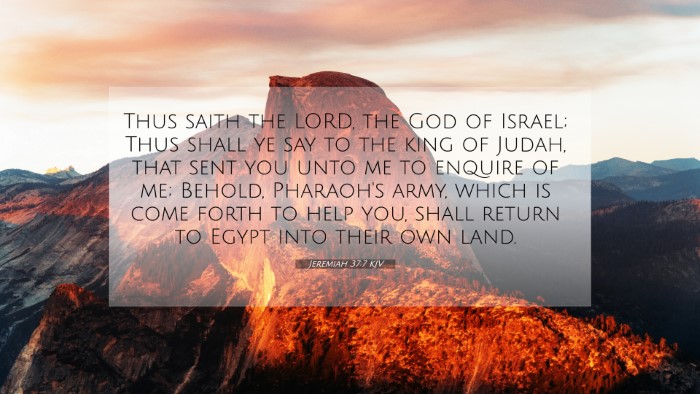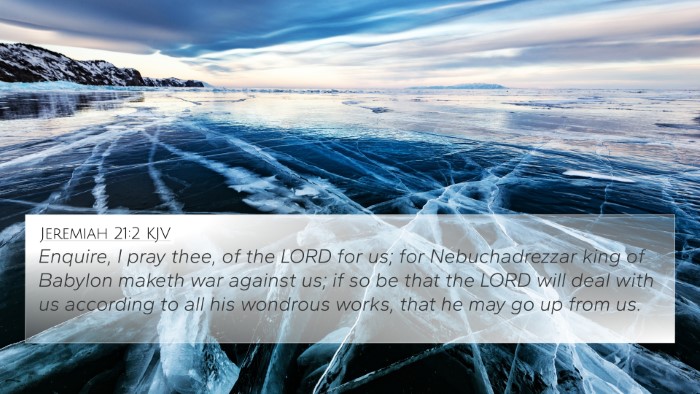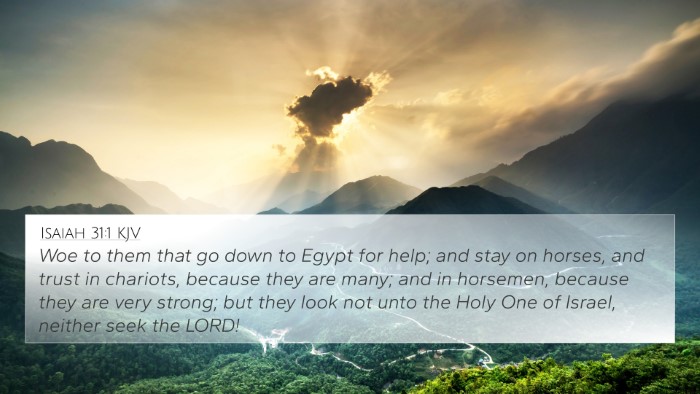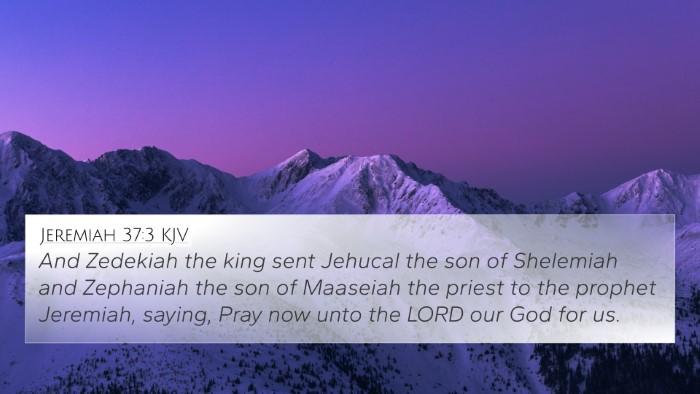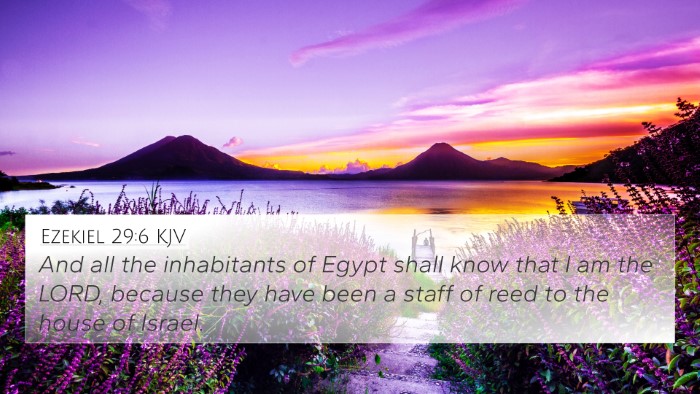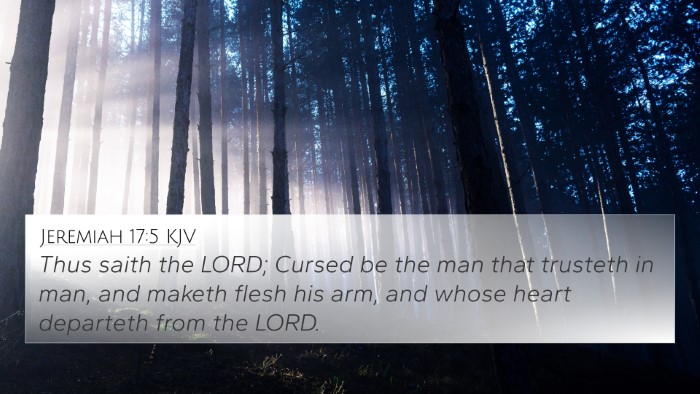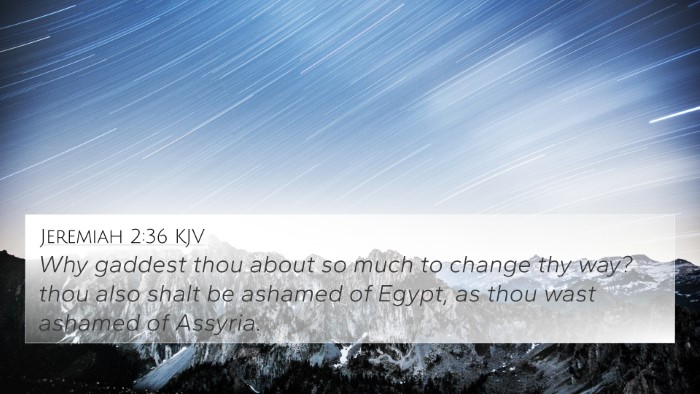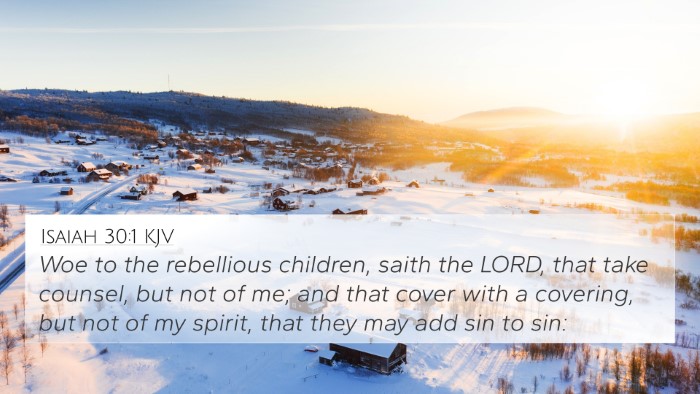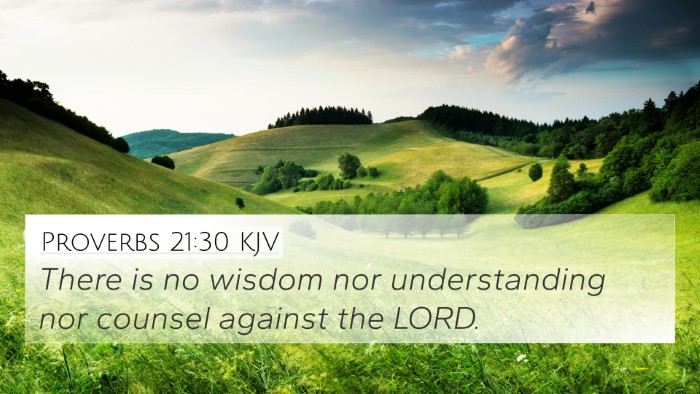Understanding Jeremiah 37:7
Verse Reference: Jeremiah 37:7 - "Thus says the Lord, the God of Israel: Thus you shall say to the king of Judah, who sent you to me to inquire of me: Behold, Pharaoh's army that came to help you is about to return to Egypt, to their own land."
Summary of the Verse's Meaning
This verse reveals a critical moment in the prophetic ministry of Jeremiah. God communicates a message concerning the political situation involving Judah and Egypt. Pharaoh’s army, which was expected to assist Judah, will withdraw, leaving them vulnerable. It accentuates the themes of reliance on God versus reliance on human aid and the inevitable judgment surrounding Jerusalem's fall.
Commentary Insights
This section compiles insights from prominent public domain commentaries, clarifying the significance of Jeremiah 37:7.
- Matthew Henry's Commentary: Henry notes that the assurance given by the Prophet Jeremiah emphasizes the futility of seeking help from Egypt. He asserts that it is God who determines the outcome, and reliance on human strength is often misguided.
- Albert Barnes' Notes: Barnes elaborates on the historical context that surrounds this prophecy, highlighting the instability of the alliances formed with Egypt. He explains that reliance on foreign powers is a recurring theme in the struggles of Israel and Judah, leading to repeated prophetic warnings.
- Adam Clarke's Commentary: Clarke underscores the symbolic nature of the message, indicating that the withdrawal of Pharaoh’s army signifies not just a military vulnerability, but also a spiritual disarray among the people of Judah. He suggests that the message encourages Judah to turn back to God during their time of need.
Connecting Themes and Cross-References
Jeremiah 37:7 serves as a key intersection point for various themes within Scripture. Below are significant Bible verses that correlate with or add depth to the understanding of this passage:
- Jeremiah 2:18: Highlights Judah’s abandonment of God for Egypt and other nations.
- Isaiah 31:1: Warns against trusting in Egypt for help, advising reliance on God instead.
- 2 Kings 24:7: Offers historical context regarding the alliances made by Jehoiakim with Egypt.
- Psalms 146:3-4: Advises against putting trust in princes and mortal man, echoing the sentiment of dependence on God.
- Deuteronomy 17:16: Discusses the eventuality of Israel’s kings relying on Egypt for horses, contrasting divine dependence.
- Jeremiah 37:10: Further elaborates on the consequences of the alliance with Egypt and Judah’s responses.
- Isaiah 30:1-3: Condemns Judah for seeking aid from Egypt, which does not end well.
Thematic Connections and Inter-Biblical Dialogues
Examining Jeremiah 37:7 through the lens of cross-referencing enhances comprehension and highlights the recurring motifs in biblical literature.
- Theme of Divine Judgment: The prophecy serves as a warning that emphasizes God's sovereign control in the face of political alliances.
- Disobedience and Consequence: Judah's reliance on foreign nations reflects a pattern of disobedience found throughout the Old Testament.
- God's Faithfulness: Despite their straying, God's messages through His prophets remain a reminder of His enduring presence and longing for His people's return.
Tools for Bible Cross-Referencing
The following tools and methods can aid in deeper study and understanding of cross-references within the Bible:
- Bible Concordance: A reference book that helps locate verses and terms across the Scriptures.
- Bible Cross-Reference Guide: A collection of verses that are related, providing additional context.
- Cross-Reference Bible Study: A method involving the examination of interconnected verses for deeper understanding.
- Bible Reference Resources: Various online and offline resources that facilitate the discovery of cross-references in Biblical texts.
- Bible Chain References: A study method that follows thematic links throughout the Scripture.
Conclusion
To summarize, Jeremiah 37:7 offers a profound lesson about the dangers of misplaced trust. Contextualizing this verse within the broader narrative of Biblical themes emphasizes God's supreme authority and the consequences of turning away from divine guidance. Through cross-referencing, one can appreciate its place within the rich tapestry of scripture that consistently urges believers to rely on God rather than the transient support of earthly powers.
Further Study Recommendations
For deeper engagement with the themes presented in Jeremiah 37:7 and to understand how to find cross-references in the Bible, consider exploring:
- Identifying connections between the Old and New Testament.
- A detailed study of the connections between the Prophets and the New Testament teachings.
- Exploring links between the prophets’ messages and Apostle letters.
- Comparative studies of Biblical themes using various cross-referencing methods.

